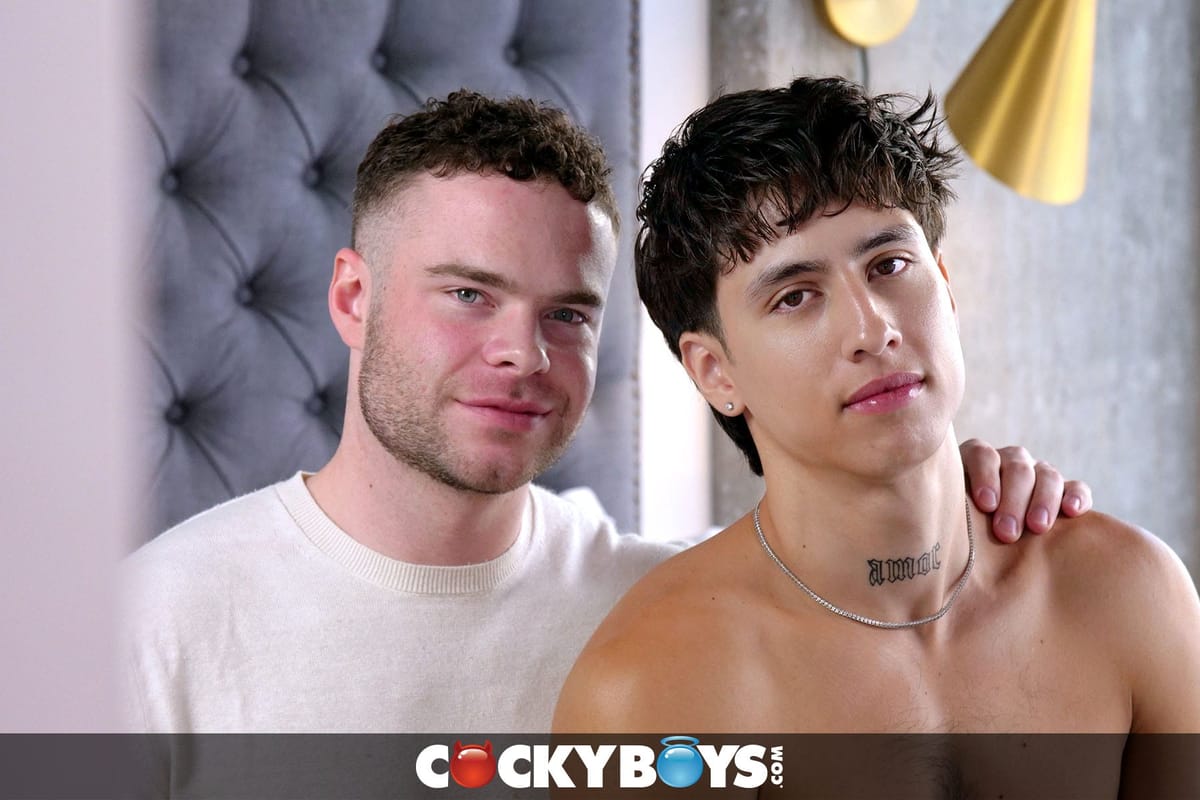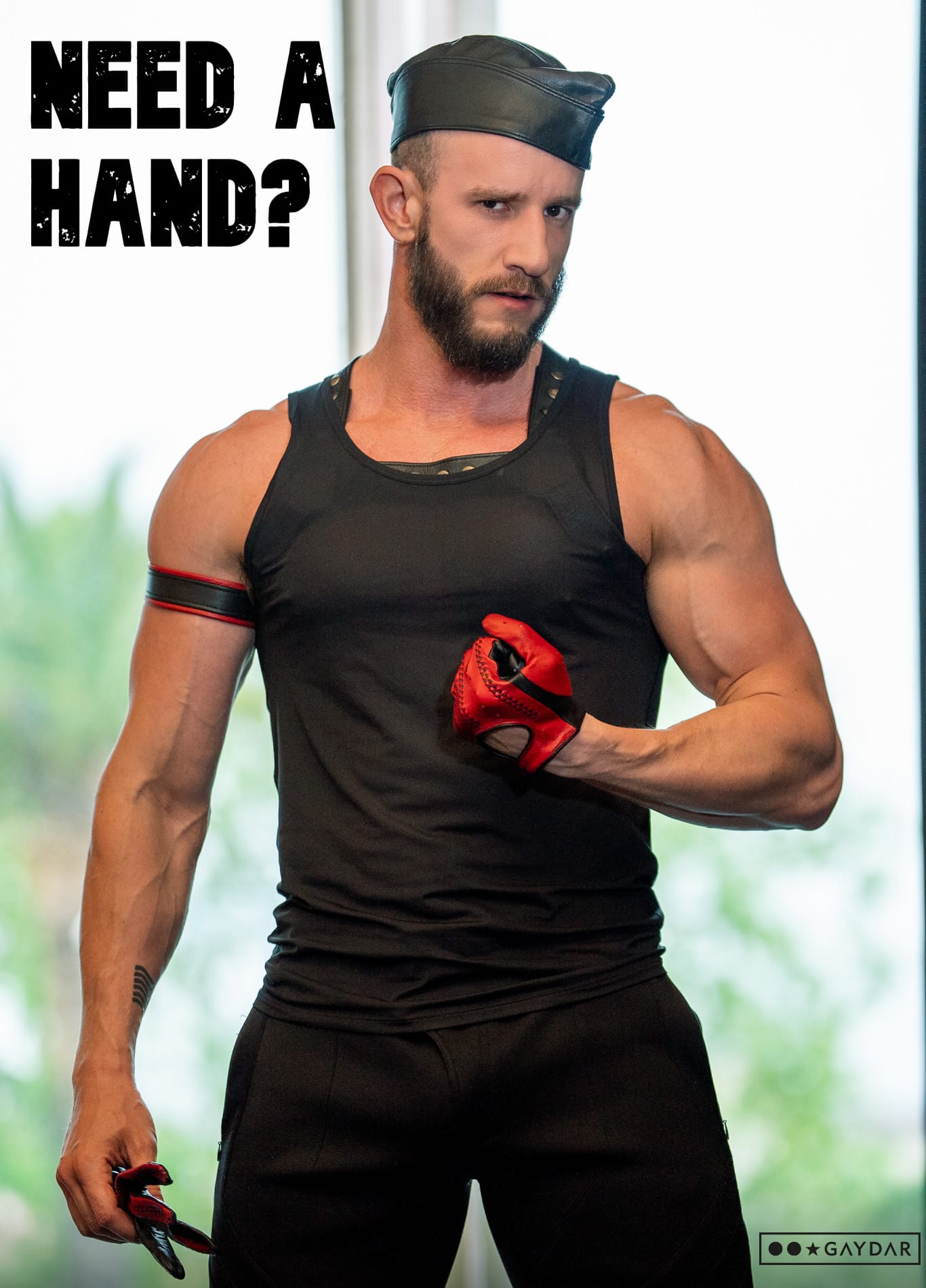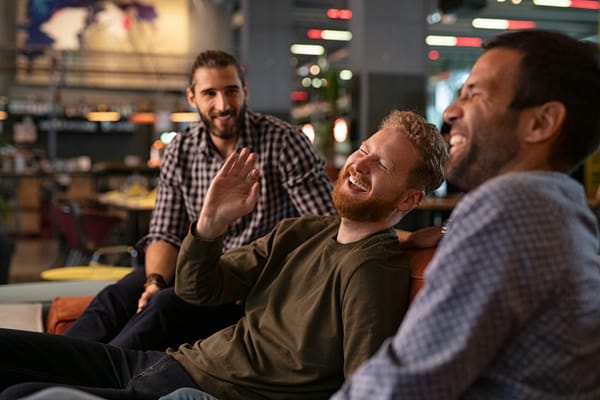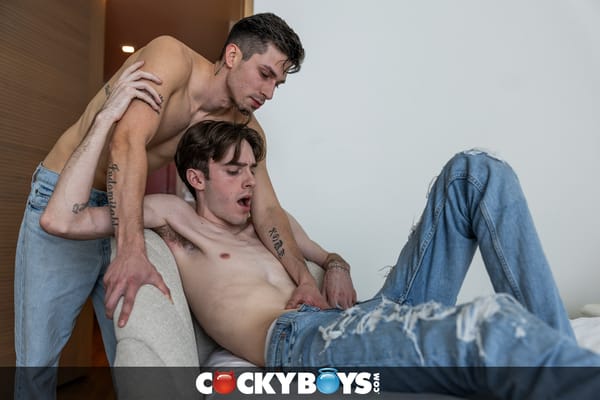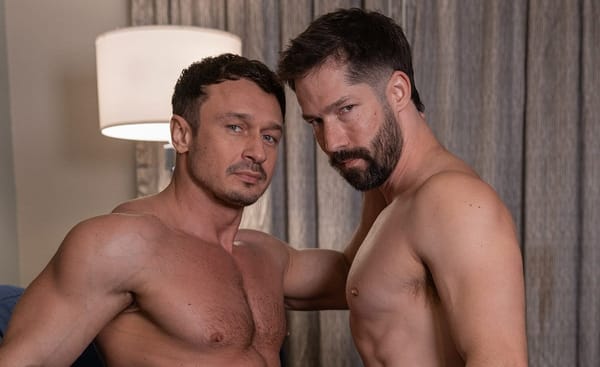What's on in London: Overwhelm
Part of the Lambeth Fringe, Stacey Cullen's play tackles toxic masculinity.
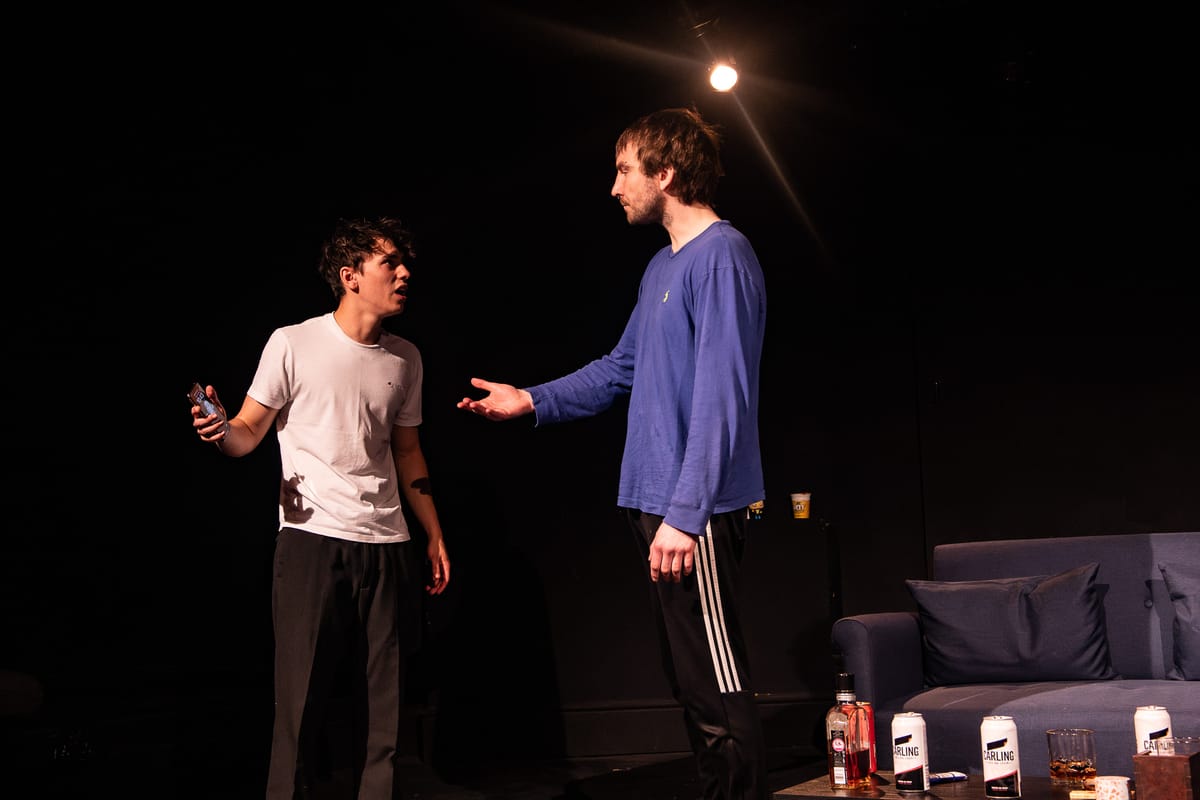
Written and directed by Stacey Cullen, Overwhelm confronts male loneliness, addiction and the rise of radicalisation.
Cast
- Jake: Sam Bates
- Miles: Louis Martino
- Riley: Max Burnett
At a time when headlines warn of a “male loneliness epidemic”, with online radicalisation and mental health crises colliding, Overwhelm stages these pressures in real time. Following three young men, Jake, Miles and Riley, the play examines what happens when silence, addiction, and masculinity intersect through their individual journeys.
The production draws from real life experiences with mental health struggles.
Overwhelm will run at the Bread and Roses theatre in London, 18-19 October
Stacey Cullen on How To Date Men
For our podcast, How To Date Men, we caught up with Stacey Cullen for a behind-the-scenes look at Overwhelm.
In the conversation, we talk the problem with patriarchy, lessons from intersectional feminism, and why we all need to have a bit more empathy.
Overwhelm focuses on three young men as they navigate some of the challenges associated with masculinity. Why was this a story that you wanted to explore?
As a female writer - a woman identifying writer - I have often written things in the past about women and the things that we go through, but I really felt like it might be an interesting challenge to try to get in the heads of this generation, especially as young men and all other things that are sort of coming in at them from all sides at all given times because of this whole 24-7 news cycle that we're all part of and all of the content that's being thrown at us constantly, especially young men in the the Manosphere as it were with Andrew Tate and co. And it just felt like a really, really urgent, prescient subject that needed to be spoken about.
But I also wanted to do it from the lens of a woman to see if I could find those ways in that helped maybe other women as well to see them as a little bit more human and to be able to empathise with them and just to analyse what's going on with young men from the lens of why it's happening rather than just the fact that it is happening.
I guess that "why it's happening" question is an interesting one, isn't it? You touched on the Manosphere, the news cycle. What is wrong with men? Are they the victims of all of this? Should we be feeling sorry for men?
There was a joke that was made that it's like the hardest time in history to be a man right now. And while it is really funny in a way, because it's never really been that hard to be a man in the history of time.
It is actually genuinely probably the hardest time in history to be a man right now because you've got the rise of feminism, which is excellent. And we are actually sort of reaching this place where equal rights have sort of begun to become close to a thing, even though we're having some of those slowly stripped away as well. Now we're sending ourselves a bit backwards.
But like genuinely it probably is the hardest time to be a young man right now. And while that isn't saying much because of all of the advantages that men have had over many centuries and continue to have even now, it must be difficult hearing almost every day that your very existence as a man is an imposition to everyone else around you.
And I think that that is probably something that we don't think about enough and that we don't try to adjust for enough.
One of the things that really sparked this play for me was back in the day on Twitter when we used to use that a bit more because it wasn't a complete cesspool. I would see women sort of like quote tweet things that they found offensive from men and they would quote tweet it with the saying or something along the lines of men deserve to be lonelier actually. And I think as much as like that might feel justified to us in the moment, it sends a message that there is this overlapping sense of basically misandry that men are hated, they deserve to be hated, and that's not going to change from here on out.
And that sets a certain tone for young men who this is the only context they really have. And it makes them believe that everyone feels that way about them. And then they find their way into these like corners of the internet that support that view. And it only builds and builds over time. And then it gets worse for all of us.
And so I think it's really the social commentary that we're handing out right now and the very limited empathy that we're willing to lend that's creating some of the problem. Obviously toxic masculinity is still very much a thing. That makes it a problem and continues to exacerbate the problem. But I don't think we're lending enough empathy to these folks. And I don't think that we're using enough nuance in our conversations.
You're talking about having a bit more empathy, but that impact of toxic masculinity - of men feeling lonely and isolated - that doesn't only hurt men, we all feel the consequences of that. How does bringing a female perspective to that give us a different understanding or a different perspective on what men are going through?
I think I'm still trying to figure that out for myself.
I wrote it from the perspective that helps me to understand what it is, how it affects women around men as well. And this play does have a few female characters. They don't actually ever appear on stage, but they're referenced quite often. And we hear one of their voices once.
So it does make sure to address how these things are affecting the women in these men's lives without ever necessarily having to see them, which I think depending on who you are audience-wise, it can come off as either like incredibly anti-feminist because they never appear, or it can come off as like, we're actually considering how this affects women and that's really great. It just depends on who you are.
One major worry when I wrote this play was like, God, I'm going to be labeled completely anti-feminist because I'm a woman, a queer woman at that, writing about like, we should actually have more empathy for men. But so far actually, it's been really well received and people have really come to it with open arms and open minds, which makes me really quite happy.
But I think that the thing is that we need to recognise is that patriarchy hurts all of us. And patriarchy is still the overarching power mode in our society. And that's why it's still hurting all of us. The male loneliness epidemic hurts men, but it hurts everyone around them as well. And until we can start to dismantle patriarchy a bit more and actually address how it's affecting all of us in tandem with our gender and not in spite of it. That's, think, how we actually start to heal a little bit.
Talk a little bit about your casting process - how have the men that you've cast shaped the tone of the play and the performance?
The casting process initially was kind of a nightmare. I don't think I ever want to cast anything myself ever again. Mostly because we had such an amazing response. So many people reached out because they were interested in the project.
I am very detail oriented. I am autistic and ADHD. So I need to like really dive in on details. And I feel like a very serious responsibility to give everybody an equal chance. And so when we got 250 applications for two roles, I had to read each and every one of them. I had to watch every self-tape at least twice. Each of them were about five minutes long, so you can do the mental math on how long that must have taken. And I just really wanted to make the right choices.
And we ended up bringing on some really, really lovely labs who have just done amazingly with it. My partner, Sam, who also runs the company with me, plays Jake, who is the young man who can't leave the house. And he's really helped to shape it in that he's from the West Midlands. And I've decided to set this somewhere in the West Midlands, a very small town, because it just feels the most universal in a way, in order to sort of relate more to as many men in the UK as I can.
And then we brought on a young man called Louis Martino who plays Miles, who's like the one sort of put together guy in this situation, but is still sort of struggling to talk about the things he needs to talk about. And these two keep sort of talking past each other. And he's really helped to shape it because he's just so, so interested in making sure that the character is very fully fleshed out, has a full backstory, and he knows everything inside and out about this person that he's playing and how he is both helpful and or detrimental to the situation that Jake, his counterpart in the play is in.
And then we've actually had two people play Riley over the period that we've done the play because we've done it in three different mountings now. The first, we didn't really see Riley too much because he's really more of a ghostly sort of haunting presence, even though he's not dead. I'll say that. But he's sort of outside of this environment because he's, by the time we meet them in this play, he's sort of living on the streets and struggling with addiction. And the first young man that we had play him was called Harrison Sharp who actually just finished a turn in a play off West End, which is why we weren't able to have him the second time around. But that caused us to bring in a new person to play that character called Max Burnett. And he's been absolute magic. We've gone to a place where we've brought the character on stage and he's more of a presence for the audience. And he's sort of like floating about the space and interacting with things that are happening with these two who are in the room, but they can't see or hear him. And it sort of mirrors this dynamic that he's trying desperately to get through and he needs help, but he can't quite get where he needs to go.
And it's been really just a great process having all of them in the room. Every time we go into the rehearsal room, we spend a lot of time just talking through how these characters are feeling, what it is they're going through. And I think that as a team, they've been able to add so much meat to something that I put forth the skeleton and then they throw the muscles on it.
I've always thought that theatre is a very collaborative process and it reaches its best when you allow everyone in the room to contribute something instead of being precious about your own writing and being like, no, well, I wrote it this way for a reason. It doesn't need to be word perfect. And sometimes when they riff and they come up with something, I'm like, yes, that's brilliant. Keep that, that. And it's just much more full and alive because of the folks who have worked on it.
Through the process of writing this play and bringing it to the stage, have you found that that's evolved or shifted your perspective on men and masculinity in any way?
Probably. I'm also a very research heavy writer. I watched an immense amount of documentaries, read a lot of books and really tried to get myself in this mental head space of what it's like to be a young man over the past 10 to 15 years. And though I'll never actually be able to like fully reach that because I'm just not a young man. I think it's really sort of helped me to frame it a lot better for myself.
And having done all of that - even going into it thinking that I was going to have this point of empathy that I want other people to have - I think I was so much further from where I wanted to be when I started that process.
Because we all see things through a specific set of rose-colored glasses that come from all of our life experience and all the baggage we're bringing to something. And so it's really interesting and sometimes quite difficult to sort of remove that lens in order to meet it with a little more neutrality so that I could really dive in the way I needed to. And I think it's happened over time and I think it'll continue to happen as we move forward with this piece, but it's a learning process every day,
Do you find yourself now defending men?
I've gotten better at discussing it in public to where people might actually be like, yeah, okay, I get where you're coming from. Which is nice because it's nice to feel like that is actually making an impact.
I'm still quite a strong feminist and I believe in a lot of feminist theory and I think that we have a long way to go in so far as women being treated with the same level of respect that they should be. But I think that these things aren't mutually exclusive anymore, which I think I used to sort of buy into the idea that they were. And I think that most people do because it's easier that way than to say like, actually these things are inextricably intertwined and so we need to be addressing them in tandem.
It applies equally to like trans rights as well, right? In order to do better for trans people, we need to recognise that like, this is the problem with intersectional feminism right now. I think they fail to realise that women's rights in a general sense are inextricably intertwined with trans rights. And the fact that they're trying to tear this set of people down is also harming them.
Overwhelm is running for two nights as part of the Lambeth Fringe. What happens to the play beyond this performance with Fringe?
This is the last time that we'll be putting it up this year. We're hoping that maybe, just maybe, somebody will come along and see it and want to do a longer run of it in London. We'd really, really love to do like a three week run at a mid-size venue if we could. Because we've taken it through several fringe festivals now. And I think that that has really helped us to hone it in and find the really best version of the play. And so now it would be nice to do it somewhere larger and bring it to a bigger audience.
We'd also like to tour it - specifically through lots of small towns in the Midlands if we can, because it's obviously quite geared towards that demographic. And you want to reach the audiences that you're trying to cater to. And we've also talked about doing like small international fringe festivals because there are places like Barcelona and Amsterdam that have Fringe festivals now that we would really love to visit.
As much as it's written as a UK-centric story, it is also quite a global message and quite a global issue that needs addressing. And so we hope that we can take it to other audiences outside of the UK as well.
What do hope that people feel when they come and see Overwhelm?
I think that theatre does its job best when it causes people to question what they think they know. I find that theatre is at its best as well when people feel a little uncomfortable when they're leaving because it's caused them to question things. And so I hope that it makes people a little uncomfortable and that they bring a friend, have a conversation afterwards, or come down to the pub and have a chat with us afterwards, because we love talking to our audience members. We really, really do. We love hearing what they loved about it, what they hated about it, actually quite genuinely, because hearing what they hated about it helps us to grow. And we're not precious. We can take some criticism.
We really, really hope that conversations are had, and not just on the night, but afterwards, because we really want people to just go forth and talk. I think that's really the main goal.
The NSFW edition
If you want to admire some man-on-man action, our NSFW edition gives you every inch.
Sign in and check out our NSFW content - it's free!
